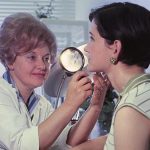‘Roadmaps’ of the brain reveal regions vulnerable to Alzheimer’s disease
Much like a supply truck crossing the countryside, the misfolded proteins that damage neurons in Alzheimer’s disease travel the “roads” of the brain, sometimes stopping and...
Much like a supply truck crossing the countryside, the misfolded proteins that damage neurons in Alzheimer’s disease travel the “roads” of the brain, sometimes stopping and...
Imagine being woken up at 3 a.m. to navigate a corn maze, memorize 20 items on a shopping list or pass your driver’s test.
The collection of nasopharyngeal swab (NPS) samples for COVID-19 diagnostic testing poses challenges including exposure risk to healthcare workers and supply chain constraints. Saliva samples are...
Best Buy just dropped the price of the Microsoft Surface Pro 7 to an all-time low. Seriously, this thing is super cheap and you don’t want...
A British man who rejected the standard of care to treat his brain cancer has lived with the typically fatal glioblastoma tumor growing very slowly after...
It’s often cancer’s spread, not the original tumor, that poses the disease’s most deadly risk.
A new study from researchers at Children’s Hospital of Philadelphia (CHOP) and the University of Pennsylvania’s Annenberg Public Policy Center found that 18- to 24-year-olds who...
Hackers have broken into the systems of Electronic Arts, one of the world’s biggest video game publishers, and stolen source code used in company games, a...
The U-Vip (Unit for Visually Impaired People) research team led by Monica Gori at the IIT- Istituto Italiano di Tecnologia (Italian Institute of Technology) has recently...
Ahead of Prime Day 2021, Amazon is offering an awesome deal on the 2019 Apple AirPods with Wireless Charging Case. You don’t want to miss this!








